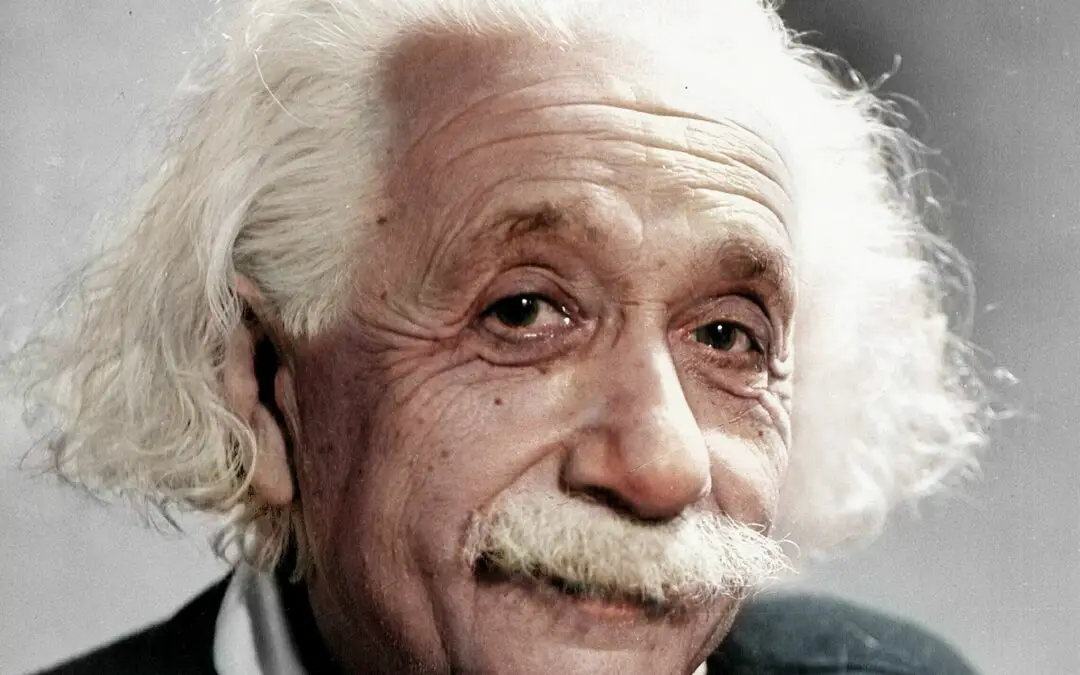There’s no question that Albert Einstein was incredibly smart. He single handedly changed the way that we think about the universe and created new areas of physics. News articles and other sources online typically put Albert Einstein’s IQ score at 160. However, there are a few problems with this IQ score estimate.
1. Albert Einstein never took an IQ test
Albert Einstein never actually took an official IQ test. The only aptitude tests that people can rely on were school exams when he was in primary school. There is also some controversy over how well school grades at the time can be used to estimate someone’s potential for great intellectual achievement.
2. Modern IQ tests did not exist
IQ tests were in their infancy while Einstein was alive, and modern IQ tests that provide reliable scores did not exist yet. The Wechsler Adult Intelligence Scale and the Stanford-Binet Intelligence Scales (which tend to be used in modern IQ tests) were developed after Einstein’s death, so we can’t know his full score on these tests. Estimates of Albert Einstein’s IQ based on these tests are somewhat unreliable.
3. 160 is the maximum IQ score for some tests
For example, the Stanford Binet IQ test has a maximum IQ score of 160. It’s safe to assume that Einstein would have a high IQ score if he took an official IQ test while he was alive, however claiming that he would score a perfect 160 is unreasonable. Other IQ tests allow invidiuals to score over 300, so it really depends on what IQ test someone is referring to.
What would be Einstein’s IQ score on the modern scale?
Unfortunately, we can only speculate as to what Einstein’s true IQ score would be today. This can only be derived from historical records, many of which do not provide a clear sense of his overall intelligence.
About IQ Tests
IQ scores are a measure of a person’s intelligence relative to the general population. The average IQ score is 100, so an IQ of 130 or higher would be considered very high. Most people who score at least an IQ of 135 are considered gifted, and they may be able to earn more advanced degrees.
IQ Test Questions
IQ tests are not just about being right or wrong. The test taker has to have the reasoning ability required to arrive at the right answer, so speed and fluency are factors as well. People also have to think outside the box for complex problems, which can sometimes give them higher scores. Test questions also do not consist of arithmetic and word knowledge questions, but understanding spatial reasoning, working memory, and general knowledge.
Many argue that it is difficult to measure someone’s intelligence using this test because it does not account for factors such as upbringing, cultural differences, and environment. Einstein was raised in a middle-class family with Jewish ancestry. English was a second language to him, and he shared many different norms from those who grew up in the United States, where he lived in the later years of his life.
About Albert Einstein
Albert Einstein (14 March 1879 – 18 April 1955) was a German-born theoretical physicist. He developed the theory of general relativity, one of the two pillars of modern physics (alongside quantum mechanics). Einstein’s work is also known for its influence on the philosophy of science.
Einstein is best known by the general public for his mass–energy equivalence formula E = mc 2 (which has been dubbed “the world’s most famous equation”). He received the 1921 Nobel Prize in Physics for his contributions to theoretical physics, and especially for his discovery of the law of the photoelectric effect. The latter was pivotal in establishing quantum theory.
Einstein published more than 300 scientific papers along with over 150 non-scientific works. His great intellectual achievements and originality have made the word “Einstein” synonymous with “genius”.
Image credit:
Google, CC BY-SA 4.0, via Wikimedia Commons
